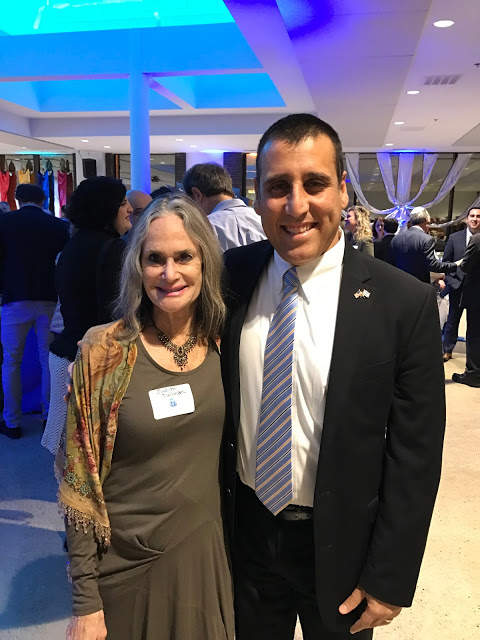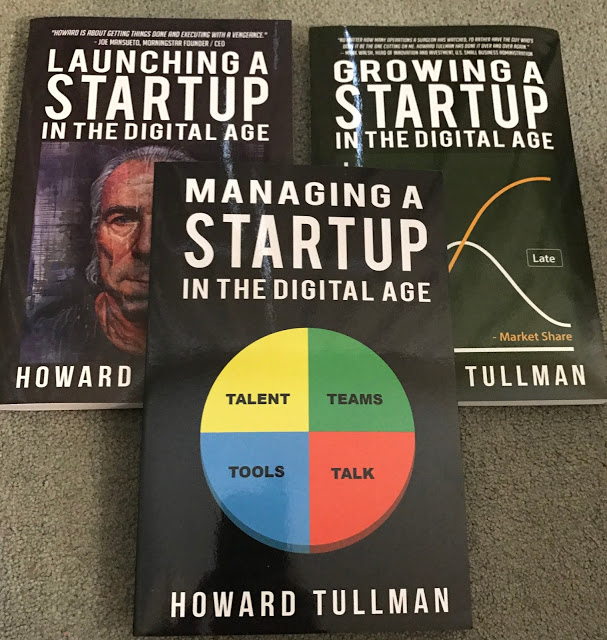Big Tech's Healthcare Headache
The
same abysmal customer service that works for selling toasters or books is not
going to fly when it comes to delivering medicine and medical care. Actual
patients demand actual people to take care of them.
General managing partner, G2T3V and Chicago High Tech Investors
One of the few lessons
that will, hopefully, remain long after the Theranos debacle is yesterday's
news -- the criminal trial of CEO Elizabeth Holmes is set for this year -- is
that morality is relative. Who you hurt apparently matters more than the simple
fact that you're a lying scumbag. It's still perfectly fine in the Valley to
actively mislead people about your company's prospects and your product's
current state of being, as long as the potential consequences of the fraud
are only financial.
Of course, that's
never really the case since these phony unicorns and other schemes end up
hurting plenty of innocents, including employees, patients, and consumers. The
term "innocents" does not, however, apply to the pump-and-dump
venture capital investors who promote these scams on a daily basis. No one
should ever shed a tear about their losses.
The prevailing
Theranos message seems to be that it's a much bigger and much worse evil when
you're lying about medical matters and jeopardizing the health and well-being
of actual patients as opposed to just ripping off investors and customers. This means, in retrospect, that Holmes
wasn't completely worthless. She will always serve as a bad example and a
horrible warning. But only to people who are willing to listen and learn.
Unfortunately, it
appears to date that Theranos isn't so big a deal that there aren't plenty of
other scam artists and grifters actively pursuing their own corrupt versions of
Elizabeth's little fantasy. It turns out that holding your nose and varying the
elasticity of your morals by industry and type of victims is mostly a
philosophical distinction (like believing you can find the clean end of a shit
stick), which doesn't really make a practical difference to most of these
people out there who are simply and heedlessly chasing the latest rainbow.
I guess there are
those in the Valley whose greed is so substantial and whose values are so fluid
that they believe you can successfully split hairs like this as long as you
offer the minimally acceptable solution, don't get caught lying to or cheating
your customers and/or, most importantly, get out of the game with a profit before
things implode and you lose your investment. Despite the calculated
indifference to patients' health, flagrant falsifying of data and results, and
shocking lack of oversight or controls at Theranos, we still have the snake oil
industry shilling away: fake CBD, "medical" marijuana that cures all
ills, useless dietary supplements, and poisonous vaping for kids. These bad
behaviors will only change when the market, the users and consumers, and the
competition drive the changes. As Bill McGowan, the founder of the phone
company MCI, used to say: "These guys have great loyalty to their
businesses, but their number one loyalty is to their own tush."
We are on the cusp of
a very large shift in medicine. The major tech companies, especially Google,
Apple and Amazon, are moving into health care with a vengeance, and with the
clear, but totally mistaken, view that these new opportunities can be addressed
and served by applying the same ideas, attitudes, and technologies that they've
used to master search, merch and sales. You can confidently predict that we
will see another sad parade where the "virtues" of speed and scale
trump the need for sanity and safety, and where it's the common folk who ultimately
and inevitably pay the price.
The only good news is
that this migration is going to take a lot longer, and be a lot harder, for
even the biggest tech guys to pull off. Because they just don't understand that
they're entering a whole different world. You'll be banking with Amazon and
taking financial advice from Google long before you're going to let them start
looking after your health. And this is mainly because there's a completely
different level of connection and interaction in medicine. Healthcare isn't
suited to brute force solutions, outsourcing, superficial training supported by
stupid scripting, and massive scale. Not to mention the fact that, to a
frightening extent, we no longer trust Big Tech to do anything not exclusively
in its own self-interest.
In health care, people
and especially patients and their families don't care how much you know, or how
smart you're supposed to be, until they know how much you care. And that's
caring about each of them individually and as individuals. Telemedicine may eliminate
the need to be physically present -- 7 out of 10 office visits to a doctor
could be handled over the phone -- but that doesn't mean that the provider you
are talking to doesn't need to have a sufficient bedside manner to actually
connect with each patient.
We're willing to walk
into Walgreens or CVS for a quick (and often free) flu shot, but not a whole
lot more than that (especially with the slimy residue of the inaccurate
Theranos testing that took place at Walgreens stores still present). Access and
convenience are important, but medical care is also very much dependent on
comfort, continuity, and confidence in the person you are dealing with.
Customer service in
most tech businesses is an oxymoron to be begin with. Worse yet, low-level,
relatively crappy and automated customer support is a conscious, cost-effective
goal. Much like TV programming is still about launching the least objectionable
shows so that the few remaining people watching broadcast television won't
change the channel, support from the tech companies is all about providing the
lowest and cheapest customer interaction the companies can get away with.
They have developed
extensive strategies around varying tiers of service and support, and
escalation paths that virtually assure that, even if you eventually penetrate
the massive barriers to reach a human being, the experience won't be much
different than talking to a chatbot. This approach simply won't fly with
consumers concerned about their health. Automation is never going to replace
immediacy, authenticity and actual caring in healthcare.
The absolute core of
Amazon's primary business is delivery and yet, if your package disappears, good
luck even finding the customer service numbers on the website. They're buried
multiple layers deep in order to discourage calls. The problem-solving pages on
the Amazon site give you vague instructions and "helpful" suggestions
like "wait 48 hours" and hope the thing shows up. Not exactly what
you want to hear if your kid's running a fever or you need immediate
assistance. The situation is pretty much the same with all of the others as
well. It's about MVO (minimum viable offering) or MRE (minimum required
effort) and imposing multiple tiers of pain and frustration before there's any
prospect of relief, or any real solution.
Bottom line: until the
tech giants wake up and understand that one size and one approach never fits
every situation, they can have all the tiers of service they want, but their
initiatives in health care will only end in tears all around for the
foreseeable future.








































































































































































































































































































































